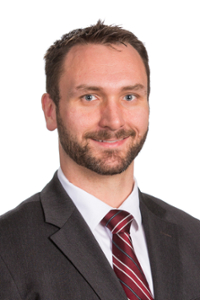
Markus Piro
PhD
Associate Professor
Canada Research Chair (Tier II) in Nuclear Fuels and Materials
Department Chair Energy and Nuclear Engineering
Faculty of Engineering and Applied ScienceDr. Piro is the Canada Research Chair in Nuclear Fuels and Materials where he leads a multi-disciplinary team of students and post-docs working on academic and industrial projects. His research is focused on supporting the existing fleet of CANDU nuclear generating stations, performing fundamental research in support of emerging nuclear technologies (particularly SMRs), and research and test reactors.
Nuclear Fuel Modelling and Perspectives on Canadian Efforts in Fuel Development
Waikoloa, Hawaii May 21, 2017The 12th Pacific Rim Conference on Ceramic and Glass Technology
Numerical Challenges in Computing Thermodynamic Equilibria in Large Complex Systems and Upon Integration in Multi-Physics
Philadelphia, Pennsylvania May 8, 2016Society for Industrial and Applied Mathematics (SIAM) Conference on Mathematical Aspects of Materials Science
New Insights Into The Flow Inside Nuclear Reactor Fuel Bundles Using Magnetic Resonance Velocimetry
Massachusetts Institute of Technology, Cambridge, Massachusetts September 13, 2016OECD/NEA and IAEA Workshop on Computational Fluid Dynamics for Nuclear Reactor Safety
Experimental and Computational Investigations of Flow By-Pass in a 37-Element CANDU Fuel Bundle in a Crept Pressure Tube
Massachusetts Institute of Technology, Cambridge, Massachusetts September 13, 2016OECD/NEA amd IAEA Workshop on Computational Fluid Dynamics for Nuclear Reactor Safety
Advances in Nuclear Fuel Chemistry
Editor: Markus PiroAdvances in Nuclear Fuel Chemistry presents a high-level description of nuclear fuel chemistry based on the most recent research and advances. Dr. Markus H.A. Piro and his team of global, expert contributors cover all aspects of both the conventional uranium-based nuclear fuel cycle and non-conventional fuel cycles, including mining, refining, fabrication, and long-term storage, as well as emerging nuclear technologies, such as accident tolerant fuels and molten salt materials. Aimed at graduate students, researchers, academics and practicing engineers and regulators, this book will provide the reader with a single reference from which to learn the fundamentals of classical thermodynamics and radiochemistry.
